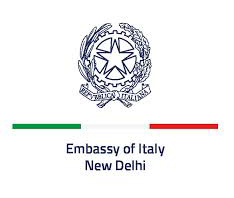
As the novel coronavirus continues to impact lives, threats posed by biological organisms cannot be taken lightly anymore. With studies on COVID-19 suggesting that it has a zoonotic source, consequences of climate change are likely to create many more similar environmental and health hazards in the future. In the current scenario, the global mean temperature continues to increase due to various deforestation, land-use changes, captive animal breeding, and other anthropogenic activities. This increase in temperature leads to disturbances in permafrost, in turn facilitating the release of new viruses and bacteria trapped in them. In the wake of these unpleasant surprises, protecting children and educational facilities is particularly important. It is imperative to educate our young citizenry so that they can avoid pathways that lead to destruction of human race. Youth have a major role to play in post-COVID-19 recovery for the world to return to near-normal situation. Apart from direct impact on health, the pandemic has nearly crippled the world economy. In these circumstances it is important that youth are empowered towards meaningful changes in their lives so as to usher in an era of new normal. Youth also symbolize young innovators and change-makers who will bring with them a new era of governance and models of start-ups to develop technological solutions to address future threats of pandemics. Globally it is realized that the current governance model needs a youth-driven policy response that is tailored to specific contexts.
In this respect, Embassy of Italy and The Energy and Resources Institute (TERI) envisaged to engage and deliberate with youth around issues related to climate change through a joint programme called Changemakers for Climate Action (CCA). The programme aspired to reach out to youth across India. Youth voices were brought forward through deliberations and dialogues around evidence based, proportionate and important environment and sustainable development issues. The recommendations and viewpoints from young participants across the country were compiled through a bottom–up approach.
The CCA initiative undertook an assessment of current perceptions and knowledge level of youth on environmental issues of concern. The responses to this assessment were collated as a 'Youth Working Document'. The programme culminated with a National Youth Forum (NYF) that was organised on September 20, 2021. The forum provided a platform to youth to bring forth their voices and connect with Government and subject matter experts to develop their knowledge on climate science and adaptation mechanism. The event was held in the presence of HE Mr Vincenzo de Luca, Ambassador of Italy to India; HE Mr Ugo Astuto, Ambassador of the European Union to India; HE Mr Alexander Ellis, British High Commissioner to India; Mr Neelesh Kumar Sah, Joint Secretary, Climate Change, Ministry of Environment, Forest and Climate Change, Government of India and Dr Vibha Dhawan, Director General, The Energy and Resources Institute (TERI). Special inputs from youth participants selected to attend COP 26 was also a major highlight of the programme along with sharing of perspective on climate change science & policy mainstreaming and youth prioritization on climate action. The event was attended by more than 300 participants across the country through the online platform and YouTube live streaming.
The findings of the Youth Assessment was also presented at the Forum and taken forward to the pre- COP26 youth event, ‘Youth4Climate’ at Milan in September 2021.
For more details, please click here
Read the Youth Working Document here
The Energy & Resources Institute
6C, Darbari Seth Block, India Habitat Centre, Lodhi Road
New Delhi - 110 003 India
Email : wsds@teri.res.in
Ph. : +91 11 24682100 (Ext. : 2467)